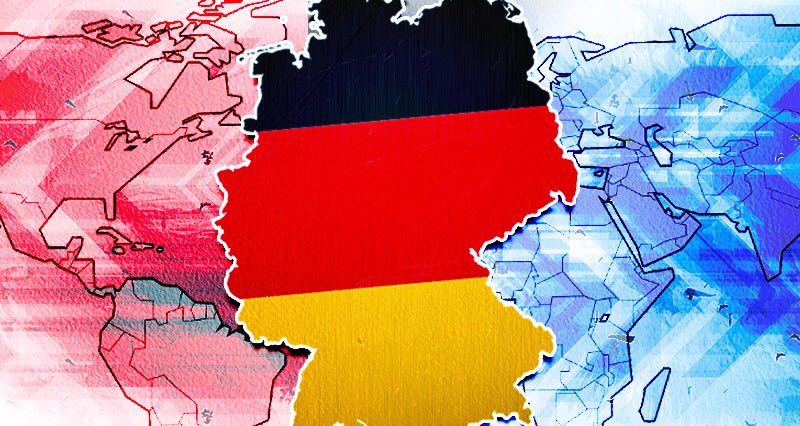The quickest way to get acquainted with a people or culture is to study their history. In a nation’s past, their common values, common views and abilities and weaknesses are described almost as if in a book. For example, to get acquainted with the Russian people, the easiest way is to open books on the history of Russia and read about the Battle of Stalingrad during WWII . The battle lasted for 200 days and ended with the defeat of fascist Germany’s forces, and a turning point in the war. Everyone who has studied the history of the Battle of Stalingrad will inevitably come to the following conclusion: “The Russian people are ready to sacrifice their lives to defend their Motherland!” This means that an army trying to attack Russia must understand that it will be opposed by soldiers who are ready to die for their native land.
The same characteristic is typical of the Turks. The history of Turkey is rich with numerous examples of this; in particular, the Battle of Gallipoli and the national liberation war that followed it: “You can kill a Turk, but you can not capture his homeland.”
Of course, there are exceptions. For example, the Germans are known throughout the world as one of the most economic, industrious and disciplined peoples… however, as much as they are talented at the level of tactics, they are just as weak in the development of strategy. One such strategic mistake was the plan to attack Russia in World War II, as a result of which the Germans found themselves in a war that they could not win.
It is interesting to see the mistakes of the past repeating today. While the Atlanticist alliance, led by the United States, stokes the fire of war in the Middle East, directly contradicting Germany’s interests, the German government seems persist in refusing to understand the “geopolitical realities” and “regional specifics.” The Atlanticist alliance’s plan in the Middle East, built on the theory of “controlled chaos”, is, first of all, a threat to Europe, and especially Germany. Already, the destructive consequences of the events in Iraq, Libya and Syria have become evident. The so-called “Great Middle East Project” – the US plan which has resulted in nothing but wars, blood, tears and broken lives, is in reality maximally directed against Germany. The targeting of Iran following Iraq and Syria, the aggressive anti-Russian position of the United States and the economic sanctions of Washington against Turkey, will hit Germany the hardest. This is because the interests of Germany and the interests of all the above mentioned countries actually coincide significantly.
The US, in almost every region, is creating “an atmosphere of chaos and instability.” On the one hand they are doing so to keep the forces of Eurasia strained, on the other to create a “migration of tribes”. Although Turkey has by now managed to contain the flow of almost 5 million refugees to Europe, it is clear that this situation can not continue indefinitely. If Syria is fragmented, and after it Iran, a new “migration wave” of such intensity will formed, that Turkey alone will not be able to restrain it. The new plans of the US are emerging now and in the northern Iraq and northern Syria new terrorist army which is composed mainly of the international narco-terrorist organisation PKK and affiliated YPG, numbering from 50.000 to 80.000, supported and trained by US against all Eurasian powers.
However, with certainty it can be said that, despite the obviousness of the situation, the authorities of Germany can not correctly analyze the situation, and occupy a position erroneous from a strategic point of view. Meanwhile, a position that meets the national interests of Germany, is quite obvious! The Germans must first clearly realize that their interests are directly related to the Eurasian region, and begin to defend the territorial integrity of all countries in the region, primarily Turkey, Russia, Iran and Syria, as their own. They must understand that the domino effect, which after Iraq and Syria may arise in Iran or Turkey, will lead to Germany losing its leading position in Europe and turning it into a “military base” of the United States.
The opposite scenario for Germany will come from the geographic East. This line is being formed by Germany’s strategic partners – Turkey, Russia, Iran, China and the Eurasian states. Germany needs to understand that it can overcome the American “chaos trap” only by showing solidarity and rallying with Eurasian players. In any other case, the German public order will be destroyed, and racist and xenophobic tendencies will continue to grow against the backdrop of the rapid decline of the country’s economy.
In these conditions, any German who truly loves his homeland should think about the geopolitical realities. The German government, for its part, needs to remember the major strategic mistakes made in the past, and make the right choice this time. This choice in its most general form is recognizing that the fate of Germany is not connected with the Atlantic front, but with Eurasia. Once the right decision has been made, it will immediately become clear that the “multipolar world” is fully aligned with Germany’s interests, and the problems that arose during the domination of the “unipolar world” can be quickly and easily eliminated. Geographical realities unambiguously indicate that Germany belongs to the Eurasian region. For the sake of the future of mankind, we must hope that the German authorities are becoming aware of this fact.

















Leave a Reply